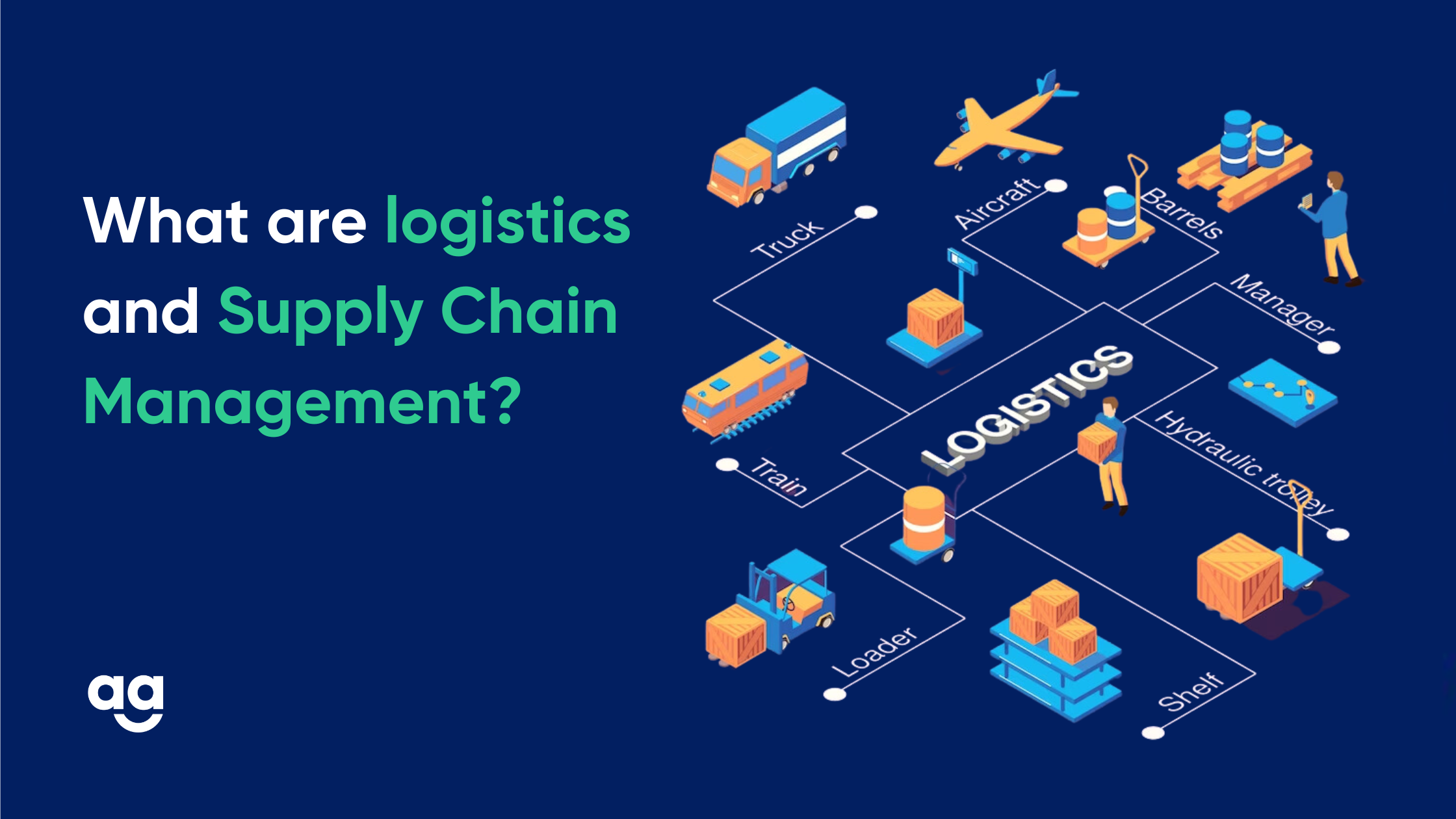Introduction
Logistics and supply chain management are two critical aspects of modern business operations. These two closely related fields involve the planning, coordination, and execution of the movement of goods and materials from point of origin to point of consumption.
Logistics typically refers to the practical aspects of transportation and warehousing, while supply chain management takes a broader view and includes the coordination and management of all of the activities involved in getting a product or service from the manufacturer to the end customer. In this blog post, we will define logistics and supply chain management, discuss their importance, and highlight some of the key concepts and strategies used in these fields.
Defining Logistics and Supply Chain Management
Logistics can be defined as the process of planning, implementing, and controlling the effective flow of goods and services from the point of origin to the point of consumption. It involves coordinating a complex web of activities, including transportation, warehousing, inventory management, and order processing, among others. The ultimate goal of logistics is to ensure that the right goods are delivered to the right place, at the right time, and in the right condition. All, while minimizing costs and maximizing customer satisfaction.
Supply chain management, on the other hand, refers to the broader set of activities that encompasses logistics, and the strategic planning and coordination of all activities involved in the creation and delivery of goods and services. This includes everything from sourcing raw materials to manufacturing products, to delivering them to customers. The goal of supply chain management is to create a seamless, integrated system that can respond quickly and effectively to changing market demands and customer needs.
Differences Between Logistics and Supply Chain Management
Although logistics and supply chain management are closely related, there are some key differences between the two. Logistics is primarily concerned with the movement and storage of goods. Meanwhile, supply chain management(SCM) is a broader concept that encompasses the entire process, right from creating to delivering products to customers.
Logistics typically focuses on specific activities such as transportation, warehousing, and inventory management, while supply chain management takes a more strategic approach to coordinating all the activities involved in the creation and delivery of goods and services.
Additionally, logistics tends to be more tactical in nature. It is focused on executing specific tasks efficiently and effectively. Meanwhile, supply chain management is more strategic, focused on developing long-term plans and optimizing the entire supply chain to meet business objectives.
Overall, both logistics and supply chain management are critical to the success of modern businesses that produce or distribute physical goods. By understanding the differences between the two fields and employing the appropriate strategies and techniques, businesses can create efficient, effective supply chains that can respond quickly and effectively to changing market conditions and customer demands.
Logistics Components of the Supply Chain
Logistics is a critical component of the supply chain, encompassing a wide range of activities involved in the movement and storage of goods. Some of the key logistics components of the supply chain include:
Transportation:
Transportation is a critical logistics function that involves moving materials and products from one location to another. This can involve a range of modes of transportation, including trucks, trains, ships, and airplanes, among others.
Warehousing and Storage:
Warehousing is another important logistics function that involves the storage and management of goods. This can include activities such as receiving, inspecting, and storing goods in a warehouse, as well as managing inventory levels. Warehouses are used to store goods until they are needed for transportation or distribution, and they must be carefully managed to ensure that goods are stored in the right conditions and can be easily accessed when needed.
Inventory Management:
Inventory management is a critical logistics function that involves tracking and managing inventory levels to ensure that the right products are available when needed, while also minimizing costs. This involves monitoring inventory levels, ordering new products when needed, and managing the movement of goods within the supply chain.
Order Processing:
Order processing is yet another important logistics function that involves managing orders from customers and coordinating the delivery of goods. This involves receiving and processing orders, coordinating the delivery of goods, and ensuring that orders are delivered on time and in the right condition.
Packaging:
This involves the design and production of packaging materials and containers for products. This can include activities such as selecting the appropriate packaging materials, designing packaging to protect and promote products, and managing packaging inventory.
Overall, logistics plays a critical role in the success of the supply chain. By carefully managing transportation, warehousing, inventory management, and order processing, businesses can create an efficient and effective supply chain that can respond quickly and effectively to changing market conditions and customer demands.
Wrapping Up
In conclusion, logistics and supply chain management are essential components of any business that involves the production and movement of goods and materials. Logistics focuses on the practical aspects of transportation and warehousing, while supply chain management takes a broader view and includes coordination and management of all activities involved in getting a product or service from the manufacturer to the end customer. Understanding the basics of these functions and their differences is crucial for businesses looking to improve their overall performance and competitiveness.
By adopting the right strategies, leveraging new technologies, and focusing on sustainability, businesses can create efficient and effective supply chains that can respond quickly to changing market conditions and customer demands. Ultimately, successful logistics and supply chain management can help businesses achieve their goals and stay ahead of the competition in today’s fast-paced and complex business environment.







 Shipping
Shipping







